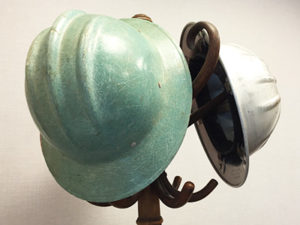The heat is no fun to work in. That hot sun mixed with concrete and humidity – sounds like a recipe for disaster. Unfortunately for those contractors in the Sunshine State, there is rarely a break from the hot weather. Even Florida’s cooler days are extremely hot for workers to spend hours working in. Contractors wear heavy clothing and equipment which can make them even hotter. Hot temperatures combined with strenuous activity could potentially lead to head exhaustion or heat stroke, which can be extremely scary, but also force the worker to be out of work for a bit while he or she recovers. In fact, since 2003, 30 workers have died each year on the job due to heat stroke.
Below, we wanted to share with you some items and ways to keep cool at the work site, so you won’t experience dizzy spells or get sick from those hot days on the job.
- If you’re at a job site, try and have a trailer with AC for workers to come to throughout the day for breaks and to reset before heading back out on the job.
- Wear sweatbands. These products will help absorb the sweat and keep you from sweating all over the place.
- Keep hydrated, which may be the most important thing any person can do to keep heat-related illnesses away. Workers should aim to drink 8 ounces every 15 minutes on hot days.
- Like sweatbands, there are also products that provide a cooling effect through evaporation. The company Grainger makes a lot of these products. They make headbands, wristbands, vests, and neckbands that can be used over and over again. They provide around 10 hours of cooling.
- Purchase hard hats with wider brims to block the sun from hitting more spots on your body and eyes.
- Shift the work day to reflect the temperatures. In the summer, it’s best to start earlier in the morning when the air is still cool.
- Try to provide or make ways for shade in the work site as spaces for rest and reprieve for the workers. Weather it’s a small tent or an umbrella, this will help keep workers cool during those scorching hot days.
- Put on sunscreen to prevent burns.
- Eat lighter meals so your body doesn’t have to work hard to break down heavy foods.
- Splash cold water onto yourself throughout the day or a cold, damp towel on your neck.
- Use fans (if you can).
Looking to become a Florida contractor? Or a contractor in any other state? We can help you through the license applicant process. You’ll give us information and we will pull everything together and file it properly and timely for you to get you licensed fast. To contact our Florida contractor licensing company, click here or call 239-777-1028.
